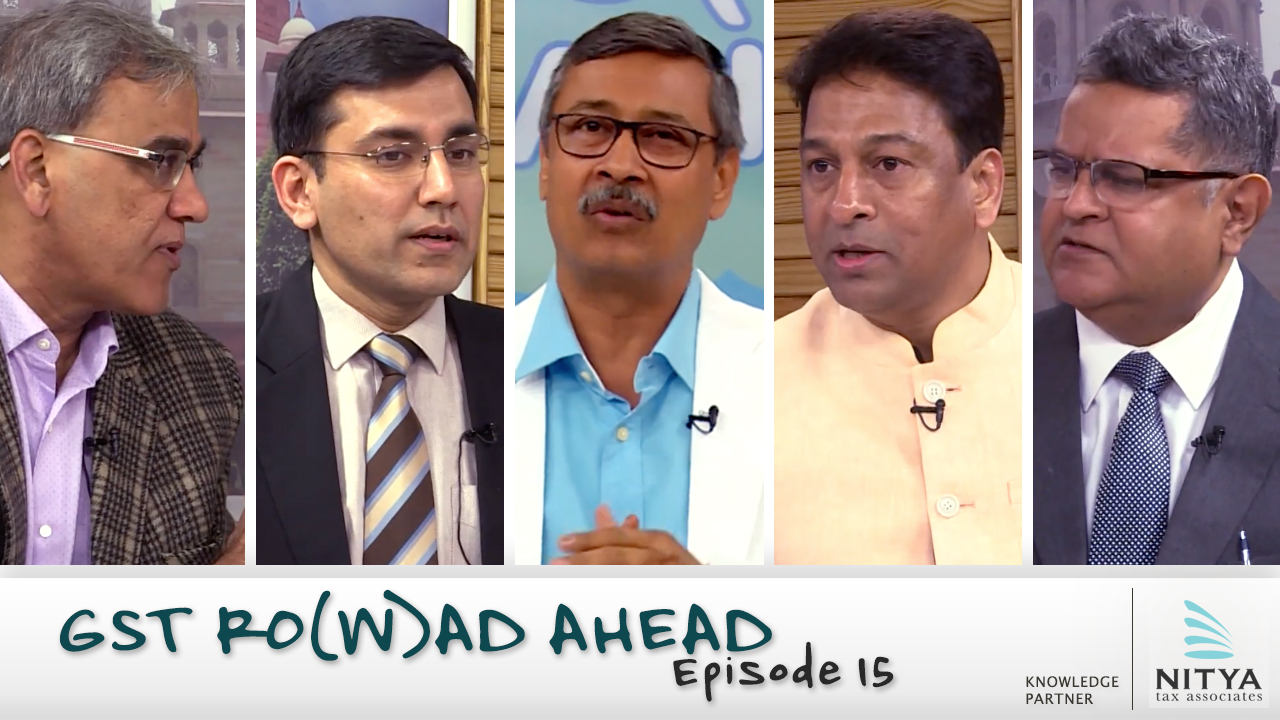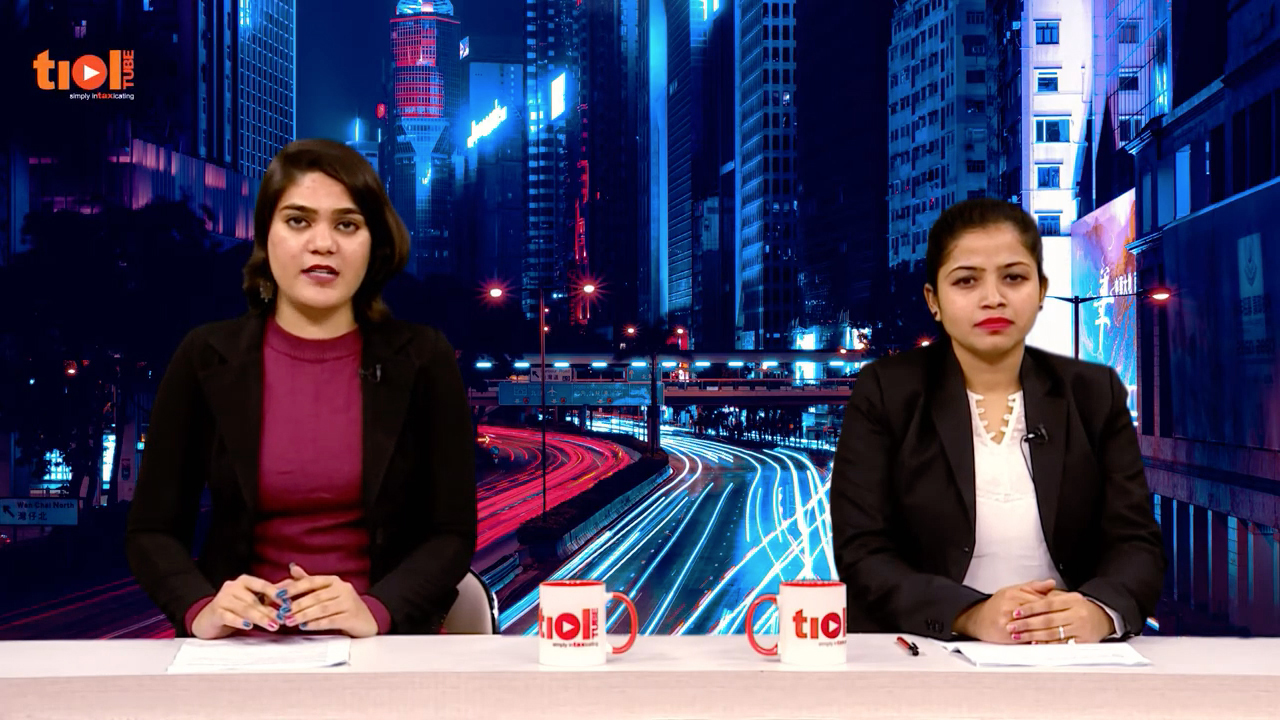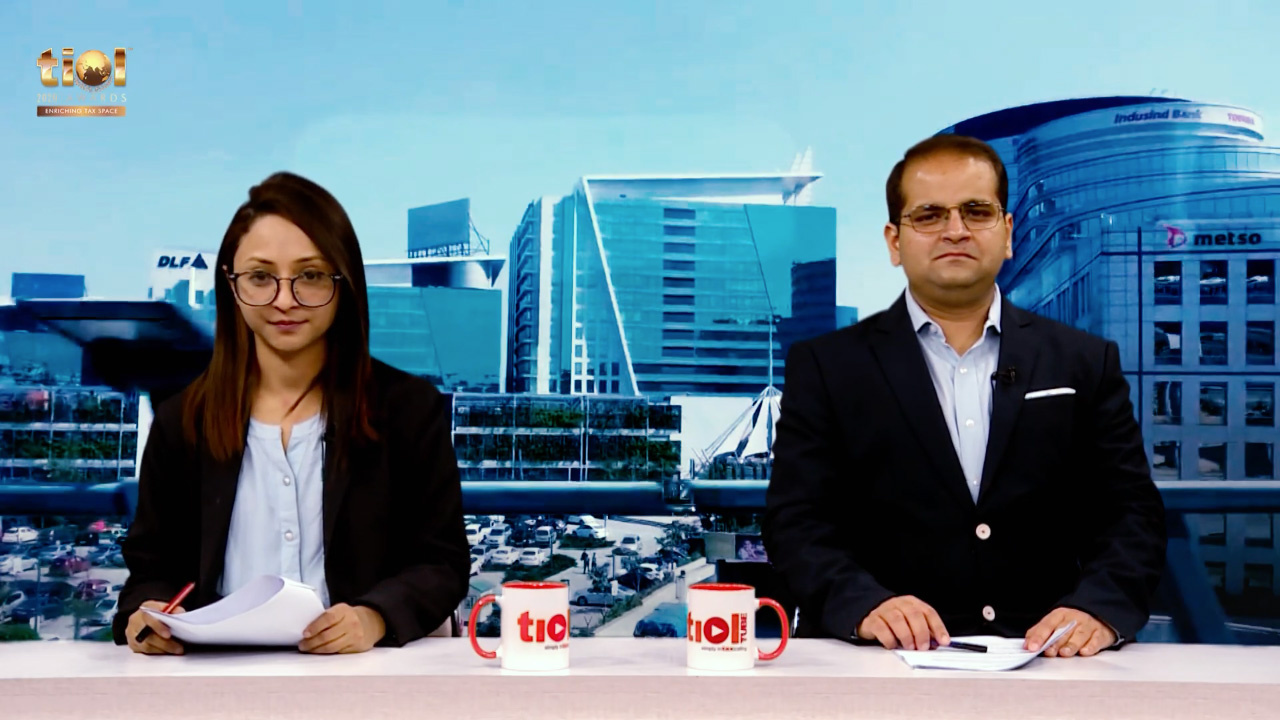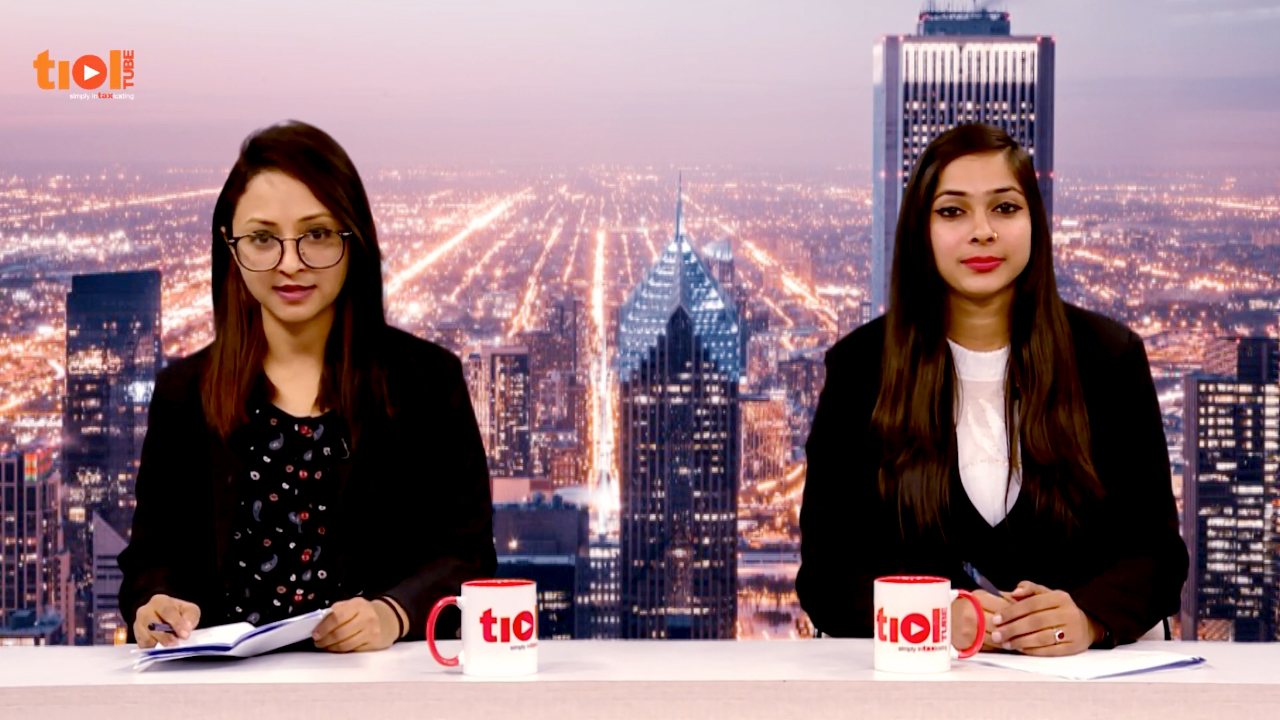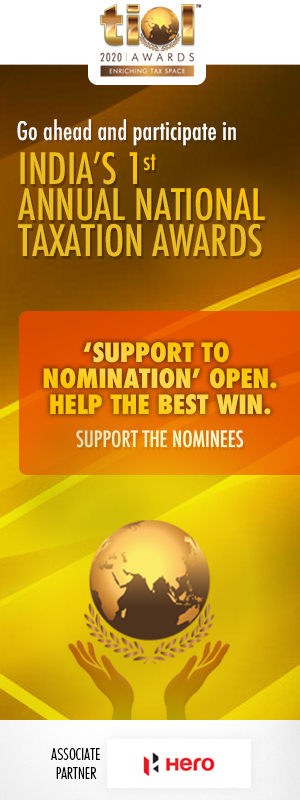|
SERVICE TAX
2020-TIOL-475-CESTAT-BANG
TNT India Ltd Vs CCE, C & ST
ST - Appellant is providing Courier Services - It appeared to Revenue that the appellant is liable to pay Service Tax on the input services received in India from the foreign service providers/co-loaders under the 'Reverse charge mechanism' relating to the period from May 2006 to August 2007 - appeal to CESTAT.
Held: Following the Circular 341/43/96 dated 31.10.1996, Tribunal in its earlier decision in the case of First Flight Couriers Ltd. - 2016-TIOL-1706-CESTAT-MUM has held that the services received by the courier agency from the co-loader is not liable to Service Tax, and further where such service is provided by a co-loader situated outside India, the said activity is beyond the territorial jurisdiction of Service Tax Law and on this account also not taxable - similar view taken in Concord Express Logistics India Pvt. Ltd. Vs CST, - 2018-TIOL-2710-CESTAT-MAD - issue is, therefore, no longer res integra and is held or decided in favour of the appellant, by the precedent decisions - Bench also finds that the issue is wholly revenue neutral as the appellant courier agency is entitled to input service credit and, moreover, they have admittedly paid tax on the gross amount, and on this score also, the part of the amount cannot be taxed again, which is incurred by them for payment to co-loader (overseas) – appeal is allowed with consequential benefits: CESTAT [para 6, 7]
- Appeal allowed: BANGALORE CESTAT
2020-TIOL-474-CESTAT-MUM
Infrasofttech India Ltd Vs CCE
ST - Appellant is involved in sale of 'canned software' produced by third parties and their own software deployed in the banking industry - service tax authorities alleged that the appellant is liable to pay service tax as provider of 'information technology software service' and accordingly confirmed the demand of Rs 3,11,95,070/- along with interest and penalty for the period May 2008 to March 2011 - aggrieved, assessee is in appeal and submits that the two show cause notices, dated 3rd October 2011 and 6th March 2012, are not in consonance with the principles of natural justice by having failed to invoke the specific sub-clause within the definition of the 'taxable service'.
Held: There is no doubt that the appellant is in the business of developing software and that such software is used by the banking industry - Bench does not find any evidence of such software being designed according to the requirements of, or standards prescribed by, customers - It is seen from the findings of the original authority that the impugned order appears to have been guided entirely by the expression 'commercial exploitation' - The commercial exploitation of the competencies and expertise of the customers which is supplemented by the software provided by the appellant is not the same as 'commercial exploitation' of the software; while the former can be treated as an 'input' or 'input service', for the latter, 'commercial exploitation' of 'information technology software' would mean the transfer of producer's own right to distribute and sell the software itself to the ultimate market - In the absence of facts that establish otherwise or of any evidence that such was the transaction between the appellant and the customers, it was not appropriate for the adjudicating authority to conclude that sale of banking software to a bank is 'commercial exploitation' merely because the bank deploys the software in its normal business activities - The specific connotation of 'right to use' and the 'intellectual property rights' enshrined within it mandates commercial exploitation to be ascertained in an entirely different context, viz., that of reproduction or distribution - no merit in the impugned order, hence same is set aside and appeal is allowed: CESTAT [para 9 to 12]
- Appeal allowed: MUMBAI CESTAT
CENTRAL EXCISE
2020-TIOL-602-HC-MAD-CX
CCE Vs JSW Steel Ltd
CX - (i) Whether the Tribunal was correct in holding that the availment of cenvat credit by the respondent M/s. SISCOL is correct, since all the three units, viz., M/s. JSWPL, M/s. JSWSL and M/s. SISCOL have been merged at a later date, though at the time of receipt of capital goods, all the three units were separate entities and the goods were received and owned by M/s. JSWPL? and (ii) Whether the Tribunal committed an error in not following the guidelines laid down by the Apex Court in = 2010-TIOL-95-SC-CX-CB , when the respondent had failed to comply with the mandatory conditions for availing cenvat credit envisaged in Cenvat Credit Rules, 2004 [CCR]?
Held: The legal position is that, the ownership of the goods cannot be the criteria for denying the cenvat credit assuming that the capital goods were purchased by JSWPL - however, the fact remains that, the capital goods were purchased in the name of JSWPL with Consignee SISCOL - moreover, the take over process had already begun in 2005 itself well before the setting up of CPP pursuant to the lease of land given by SISCOL to JSWPL - further, the majority of the fund for setting up of CPP generated by JSWPL was only from SISCOL - the actual merger of Jindal Group and SISCOL came into effect from 1.4.2007 pursuant to the order of the Bombay High Court dated 22.2.2008 - if the corporate veil is lifted, the reasonable conclusion would be that the CPP was set up not for JSWPL or any other third party or entity, but only for SISCOL - since the final product of SISCOL is iron and steel rod etc. and for the purpose of production of such final product, the power to be generated from the CPP since was fully utilised, as per the provisions of CCR, SISCOL can very well take the credit for the capital goods purchased and utilised at the factory premises of SISCOL where the CPP was established - the factual matrix of this case would give us an irresistible conclusion that, the place where the CPP was set up is part and parcel of the factory premises of SISCOL originally and it has never been separated as a separate unit or entity as the water was supplied by SISCOL to CPP and the power being generated by CPP would be fully supplied and would be utilised by the SISCOL alone - even before setting up of CPP, permission was sought for by JSWPL from the Deputy Chief Inspector of Factories, Salem on the pretext that, SISCOL was taken over by Jindal - further, even under the condition of rule 2(a)(1) and (1A) of CCR, the capital goods purchased for the purpose of setting up CPP were fully used only in the factory premises of the SISCOL and, therefore, the said contention of the Revenue that, under definition Clause in rule 2(a)(1) and (1A) of the CCR, SISCOL was not entitled to take the cenvat credit does not hold any water, therefore, it is liable to be rejected - even if the CPP is located well away from the main factory of the manufacturer of final product, the capital goods purchased and utilised for such CPP even though not in the same factory premises, even then the manufacturer can take cenvat credit - this has been explained and amplified by the subsequently amended rule i.e., 2(a)(1A) of the CCR - therefore, it has been explained or clarified in Rule (1A) which is in the aid of 2(a)(1) - in view of the said legal as well as factual position, the case of the Revenue that the Assessee i.e., original SISCOL who got merged with JSW Steel Limited and JSW Power Limited, did not have the authority or right to take the cenvat credit during the relevant point of time for the capital goods used in the CPP set up in the factory premises or vicinity of the SISCOL cannot be accepted, as such stand taken by the Revenue, is unsustainable - for all these reasons, this Court has no hesitation to hold that the order of the CESTAT, which is impugned herein, is fully justifiable and sustainable, accordingly, it does not warrant any interference from this Court - in fine, both the Civil Miscellaneous Appeals are deserved to be dismissed, accordingly are dismissed and the questions of law are answered in favour of the Assessee and against the Revenue : HIGH COURT [para 39, 40, 41, 42, 43, 44]
- Appeals dismissed: MADRAS HIGH COURT
2020-TIOL-477-CESTAT-AHM
Kadillac Chemicals Pvt Ltd Vs CCE & ST
CX - Refund of Merchant Overtime Charges (MOT) - Issue involved in the present case is that whether the appellant's refund claim of MOT Charges hits by mischief of unjust-enrichment as provided under Section 11B of Central Excise Act, 1944.
Held: Though the refund is made under Section 11B of CEA, 1944, the said section provides for refunds of duty and interest whereas in the present case, the refund is for MOT charges, therefore, provisions of Section 11B will not apply - Consequently, the provisions of unjust-enrichment is also not applicable - MOT charges has nothing to do with sale of goods, therefore, the judgment of the apex court in the case of Mafatlal Industries Limited - 2002-TIOL-54-SC-CX-CB is distinguished - impugned order is set-aside and the appeal is allowed: CESTAT [para 4 to 6]
- Appeal allowed: AHMEDABAD CESTAT
2020-TIOL-476-CESTAT-ALL
Bee Kay Precision India Pvt Ltd Vs Commissioner, CGST
CX - Issue is as to whether tools supplied free of cost by M/s Tata Motors Ltd. would get included in the cost of parts on proportionate basis - lower authorities have, while confirming demand relied upon the Larger Bench decision in Mutual Industries Ltd. - 2002-TIOL-543-CESTAT-DEL-LB , therefore, issue stands decided against the assessee on merits - insofar as limitation is concerned, the appellant never disclosed the fact of receipt of free supply from M/s Tata Motors and as such is guilty of suppression - appellant being manufacturer of motor vehicles parts is expected to be aware of the said decision - no infirmity in the invocation of the longer period of limitation - appeal rejected: CESTAT [para 4, 5]
- Appeal rejected: ALLAHABAD CESTAT
CUSTOMS
2020-TIOL-601-HC-MAD-CUS
Nakoda Unique Gold Pvt Ltd Vs UoI
Cus - Vide impugned order, the single Judge disposed of the W.P.No.31842 of 2012 filed by the Assessee - Assessee in Writ Appeal before the High Court.
Held: Since the single Judge has already protected the interests of the Assessee / appellant that no final order will be passed by the authority concerned without appropriate explanation with regard to the treaty to the Kingdom of Thailand, when such clarifications are received by the Government, the Assessee is bound to again have his say before the concerned authority - hence, the authority concerned, after giving such reasonable opportunity to the Assessee, shall pass appropriate orders, after dealing with the contentions raised by the Assessee - nothing found in the present Writ Appeal to interfere on the merits of the case and the directions issued by the single Judge call for no interference by this Court - the Writ Appeal is disposed of, accordingly: High Court [para 4, 5]
- Writ Appeal disposed of: MADRAS HIGH COURT
2020-TIOL-600-HC-MAD-CUS
Pr.CC Vs Sea Queen Shipping Services Pvt Ltd
Cus - Customs Broker Licensing Regulations, 2013 [CBLR, 2013] - (A) Whether in the facts and circumstances of the case, the Tribunal is right in restoring the Customs Broker License of the respondent herein? (B) Whether in the facts and circumstances of the case, the Tribunal is right and justified in allowing the appeal of the assessee by accepting the contention of the assessee that the Show Cause Notice was issued on 6.9.2017 and the inquiry officer report was submitted only on 29.11.2017 and the date of revocation of the license was on 9.5.2018 which again is more than 90 days beyond the Inquiry officer report, and overlooking the fact that the offence report dated 9.6.2017 was received by the appellant herein on 12.6.2017 and SCN was issued on 6.9.2017 which is within the stipulated period of 90 days and, therefore, there has been no breach of time lines by the appellant herein?
Held: As the issue whether time limits in the CBLR, 2013 is a mandatory one or mere directory since has been given a quietus by a number of decisions, this Court, by respectfully following those decisions and concurring with the view taken by the various High Courts as well as the Coordinate Benches of this Court, once again reiterate and amplify that, the time limits in CBLR, 2013 is mandatory, therefore, it has to be strictly followed - however, in the case in hand, at the three check points viz., under Regulation 20(1), 20(5) and 20(7), whether the Revenue has passed the test of limitation and if not, where it failed, has to be gone into - on 9.6.2017, Offence Report was generated or sent by the Customs Authorities to the Appellant/Revenue pursuant to which SCN under Regulation 20(1) was issued on 6.9.2017, in between there were only 87 days, therefore, in the first stage, the Revenue passed the test of limitation - at the second stage, since the SCN was issued on 6.9.2017, the Revenue should have prepared and sent the Enquiry Report under Regulation 20(5) on or before 5.12.2017, the fact remains that, such Enquiry Report was sent on 29.11.2017 and in between there were only 83 days, therefore, the Revenue in the second stage also has certainly passed the test of limitation - for the third stage, the Enquiry Report is dated 29.11.2017 under Regulation 20(5), however, the Order-in-Original or revocation of licence was passed on 8.5.2018 or 9.5.2018, in between there were 159 days, therefore, certainly it is beyond the 90 days limitation, as has been prescribed under Regulation 20(7) - on going through the Note file of Revenue, it has become very apparent and obvious that, it is not the Revenue, who kept the file, without passing the final order under Regulation 20(7) within the 90 days limitation period and it has been kept pending only at the instance of the Respondent/Licensee - moreover, it has been specifically agreed by the Respondent/Licensee that, whatever period to be consumed for keeping the file in abeyance as per its request, would be reduced from the overall limitation period of 90 days and this has been specifically agreed upon by the Respondent/Licensee as it is evidenced from the Note file where the Managing Director of the Licensee has signed - these factors have never been unearthed nor been considered by the CESTAT before deciding the issue merely on the limitation point alone - law is well settled in this regard, if the concerned party is ready to forgo or give up the limitation point out of necessity by written agreement, certainly, in such kind of situation, the doctrine of 'waiver' or doctrine of 'acquiescence' can very well be invoked - the principle of 'waiver' and 'acquiescence' has been considered in a number of cases by the Apex Court - if the aforesaid principle on 'waiver' and 'acquiescence' are applied to the present facts of the case, there would be no doubt that the Respondent/Licensee intentionally relinquished his right to raise the ground of limitation, by thus, consciously abandoning the existing legal right, benefit, claim or privilege - therefore, the present act on the part of the Respondent/Licensee can very well be construed as the voluntary abandonment or relinquishment of the right of even statutory benefit, claim or privilege, therefore, he would not be entitled to insist upon the Revenue to adhere to the time schedule under the Regulation 20(7) - therefore, in the present case, there is absolutely no material to come to a conclusion that, the Revenue has failed in strictly adhering the limitation period under Regulation 20(7) of CBLR, 2013 - the Revenue has not failed in following the time schedule or limitation which is mandatory one, as has been declared by the Courts of law in number of decisions, but the Respondent/Licensee made the Revenue to wait for some time only to get some benefits on its own awaiting some orders to be passed in the parallel proceedings initiated by the Customs Authorities - since these aspects have not at all attempted to be considered by the CESTAT in the impugned order, the order of the CESTAT is liable to be interfered with - in the result, the impugned order of the CESTAT is set aside - the matter is remitted back to the CESTAT for fresh consideration, of course, only on the merits of the issue, not on the ground or point on limitation under Regulation 20 of CBLR, 2013 - in fine, the substantial questions of law are answered in favour of the Revenue as indicated above and against the Respondent/Customs Broker/Licensee, thereby this Court allows this Appeal to the extent indicated above - Appeal allowed by way of remand: HIGH COURT [para 16, 17, 18, 19, 28, 29, 30, 31, 32, 33, 35, 41, 42, 43, 44]
- Matte remanded: MADRAS HIGH COURT
2020-TIOL-599-HC-MUM-CUS
UoI Vs Narendra Ratanchand Jain
Cus - Gold (Control) Act, 1968 [Act] - Seizure of 5 foreign marked gold bars of 10 tolas each, totally weighing 582.500 grams - This is an appeal impugning an order of acquittal passed by the Additional Chief Metropolitan Magistrate, 47th Court, Esplanade, Mumbai, on 29.10.2001 acquitting respondent no.1 of offence punishable under section 135 (1) (b) read with section 135 (1) (i) of the Customs Act, 1962 and under section 8 (1) of the Act punishable under section 85 (1) (ii) of the Act
Held: The seizure has not been independently proved - there is nothing on record to indicate that respondent no.1 was apprised of his rights under section 102 of the Customs Act and consequences thereof - for proving the offence under section 135 of the Customs Act, prosecution must prima facie establish a case of legal seizure of contraband gold from the conscious possession of accused - search, seizure and arrest of respondent under the provisions of Customs Act without appraising his right under section 102 of the Customs Act would become suspect and if there is any conviction based on possession of such search and seizure under the provisions of Customs Act, the same will have to be set aside - none of the witnesses PW-1 to PW-6 say anything about having appraised accused of his right and asked whether he wanted to get his personal search in the presence of a Gazetted officer or a Magistrate - therefore, on this ground alone, the search of the person accused or seizure of gold has to be held as illegal - therefore, the seizure itself would be illegal if at all there has been really a seizure - prosecution is relying purely on the statement recorded under section 108 of the Customs Act - PW-1 comes across as someone unreliable and the statement recorded by him under Section 108 of the Customs Act itself falls flat - it is settled law that even though a statement recorded under section 108 is admissible in evidence, it has no evidentiary value unless it is corroborated by independent witnesses - moreover, in this case, respondent has retracted and in his retraction alleged that he was mercilessly beaten by the Customs Officers - the Magistrate was also pleased to direct the Superintendent of Jail to send respondent no.1 for medical examination and the Medical Officer of the Jail has certified that accused had injuries - that indicates torture and makes this Court conclude that the confession could not be said to be voluntary - various Courts have come to a conclusion that in the absence of any corroboration by an independent and reliable witness, a statement recorded under section 108 in isolation could not be relied upon - moreover, PW-2 in his cross examination states that when they went to Abhinandan Market, Kalbadevi, to intercept respondent no.1, they did not take panch witnesses with them, which itself shows that there is no independent witness to prove that respondent no.1 was intercepted at Abhinandan Market, Kalbadevi and was ferried in a taxi to the office of appellants - there is an acquittal and, therefore, there is double presumption in favour of accused - firstly, the presumption of innocence available to accused under the fundamental principle of criminal jurisprudence that every person shall be presumed to be innocent unless he is proved guilty by a competent court of law - secondly, accused having secured acquittal, the presumption of his innocence is further reinforced, reaffirmed and strengthened by the Trial Court - for acquitting accused, the Trial Court observed that the prosecution had failed to prove its case - in the circumstances, the opinion of the Trial Court cannot be held to be illegal or improper or contrary to law - the order of acquittal cannot be interfered with - this Court cannot find any fault with the judgment of the Trial Court - Revenue Appeal dismissed: HIGH COURT [para 7, 8, 13, 14, 15, 16, 17, 18, 23, 24, 25]
- Appeal dismissed: BOMBAY HIGH COURT
|
|



